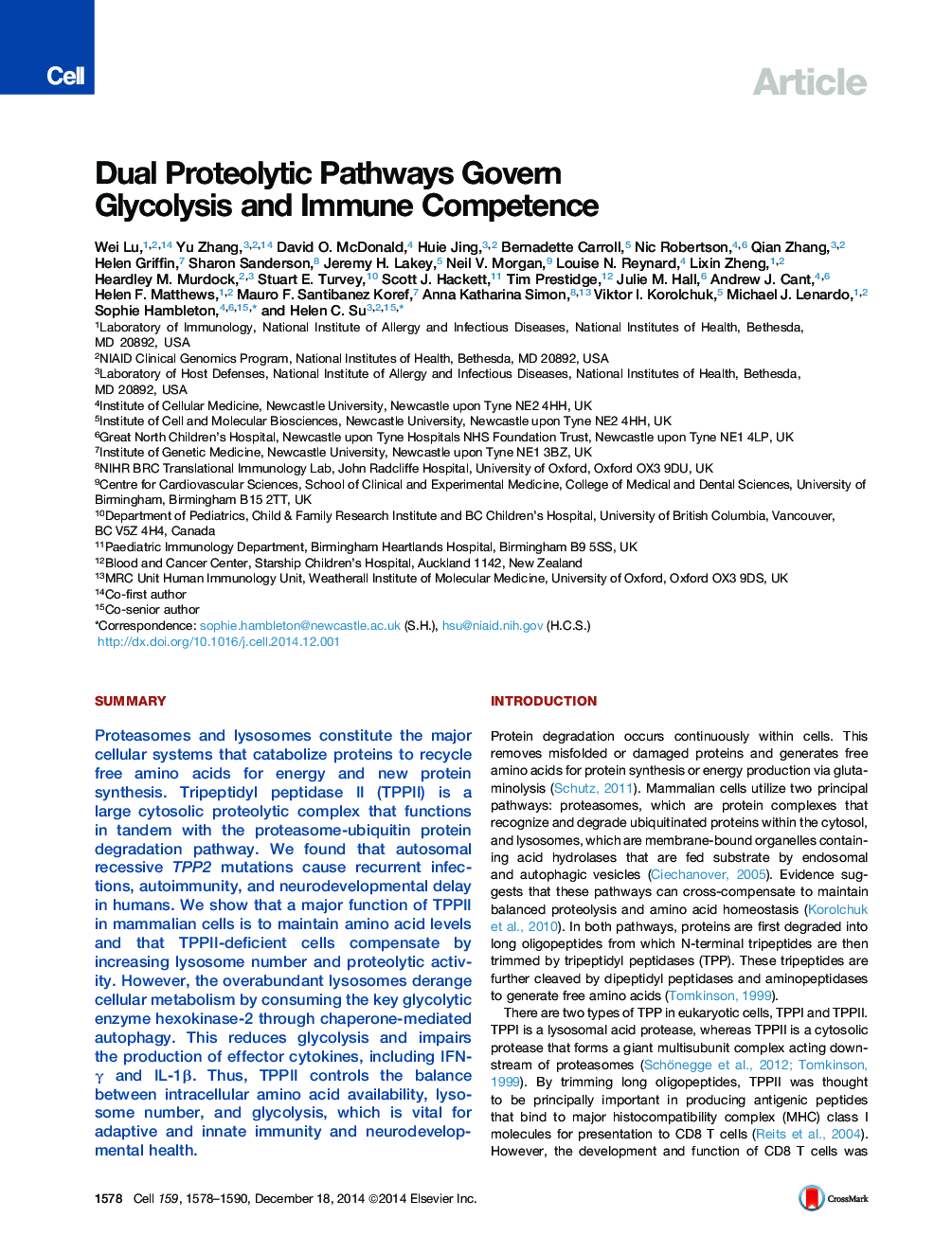| Article ID | Journal | Published Year | Pages | File Type |
|---|---|---|---|---|
| 2035173 | Cell | 2014 | 13 Pages |
•TPP2 mutations cause immune dysregulation and neurodevelopmental delay in humans•A major cellular role of TPPII is to maintain amino acid homeostasis•Absent TPPII activity expands lysosomes, which degrade hexokinase-2•The resulting defective glycolysis impairs adaptive and innate immunity
SummaryProteasomes and lysosomes constitute the major cellular systems that catabolize proteins to recycle free amino acids for energy and new protein synthesis. Tripeptidyl peptidase II (TPPII) is a large cytosolic proteolytic complex that functions in tandem with the proteasome-ubiquitin protein degradation pathway. We found that autosomal recessive TPP2 mutations cause recurrent infections, autoimmunity, and neurodevelopmental delay in humans. We show that a major function of TPPII in mammalian cells is to maintain amino acid levels and that TPPII-deficient cells compensate by increasing lysosome number and proteolytic activity. However, the overabundant lysosomes derange cellular metabolism by consuming the key glycolytic enzyme hexokinase-2 through chaperone-mediated autophagy. This reduces glycolysis and impairs the production of effector cytokines, including IFN-γ and IL-1β. Thus, TPPII controls the balance between intracellular amino acid availability, lysosome number, and glycolysis, which is vital for adaptive and innate immunity and neurodevelopmental health.
Graphical AbstractFigure optionsDownload full-size imageDownload high-quality image (199 K)Download as PowerPoint slide
